Cat Growling After Giving Birth: Is It Normal or Should You Worry?
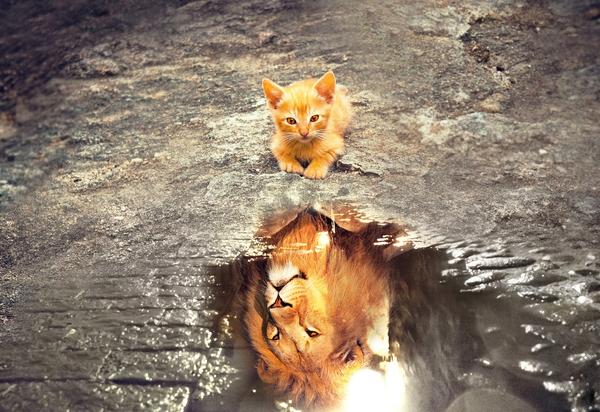
Listen up, cat parents!
Imagine your precious feline growling after giving birth, like a ticking time bomb ready to explode 🐱.
It's enough to make you shake in your boots, worried sick about the safety of your cat and kittens.
But fear not, my friend!
Today's guide holds the key to understanding this behavior and finding a solution.
So, let's get cracking and bring peace back to your kitty kingdom!
Why Do Cats Growl When Giving Birth and Afterwards?
During the intense process of giving birth, cats growl as a way to cope with the stress and pain. This vocalization continues after birth as a means to protect their kittens from potential dangers. Hormonal changes trigger maternal aggression, while factors like fear or hunger can increase the likelihood of growling.
Why Do Cats Growl When Giving Birth and Afterwards?
When cats go through the labor process of giving birth, it can be an incredibly intense experience. It's comparable to running a marathon without any prior training.
And as you could imagine, it's not easy for your cat either.
The high levels of stress that occur during labor have a significant impact on the mama cat.
As a way to release tension and manage the pain, she resorts to growling.
This growling can be thought of as vocalized sighs, a means for her to cope with the chaos taking place inside her body during childbirth.
However, here's the interesting part: the growling doesn't cease once the kittens are born.
In fact, it continues as a natural reaction for her to protect her little bundles of joy from potential dangers.
Instincts kick in, and through growling, mama cat sends a clear message:
Back off!
These are my babies, and I'll do whatever it takes to keep them safe.
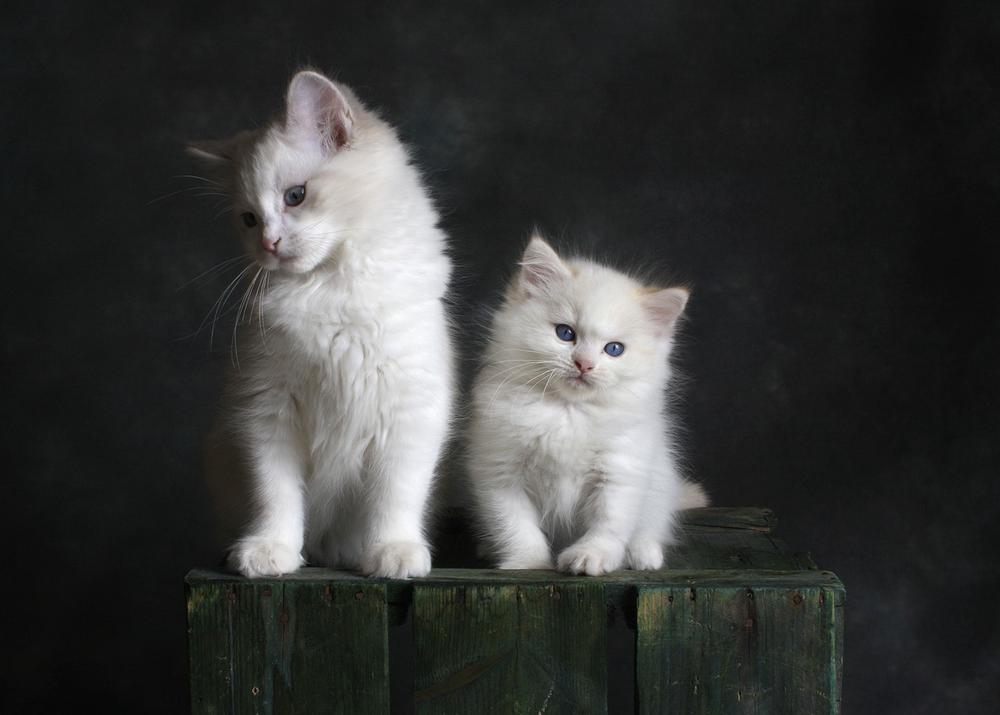
This maternal aggression is primarily triggered by hormonal changes.
As estrogen levels rise and the bonding hormone oxytocin is released, mama cat becomes fiercely protective.
But you must note that not all cats exhibit this behavior.
Certain factors such as fear, hunger, or the need for more food can increase the likelihood of growling.
It's worth mentioning that growling can also indicate discomfort or pain during the birthing process.
Consider the contractions and cramping—it's far from a pleasant experience for your furry friend.
But wait, there's even more to the purpose of growling!
It also serves to keep those crying newborns safe from harm.
So, when you hear your cat growling after giving birth, there's no need to panic.
It's completely normal. It simply signifies her protective instincts and desire to care for her young shining through.
Just make sure that you continue supporting her, create a safe and calm environment, and most importantly, allow her to do what she knows best.
Main points I'll expand upon further down this article:
- Mother cats exhibit protective behavior to ensure the safety of their kittens.
- Kittens learn important social skills from their mother and siblings.
- After giving birth, cats may exhibit playful behavior.
- Purring after giving birth is attributed to hormone levels.
- Different cat breeds display varying levels of vocalization.
- Maternal aggression fades as kittens grow older.
- Excessive behavior subsides after a few days.
- Caution and respect are necessary when approaching a mother cat and her kittens.
- Maternal aggression can be influenced by difficult nurturing conditions or sickness.
- Providing a separate space with essential resources can minimize aggression.
But here's what you might be wondering...
What other behaviors can we expect from a mother cat after giving birth?
Well, let me tell you...
What Is Normal Behavior for a Cat After Giving Birth?
You'll be amazed at what you see when a mother cat gives birth.
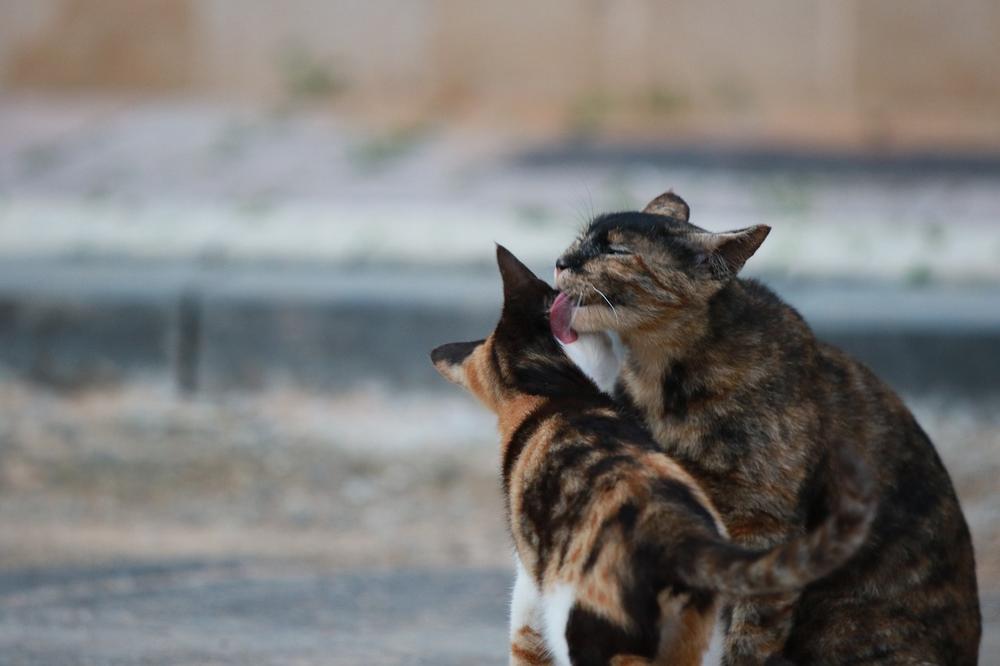
Take a look at these unique behaviors she might show:
- Cats can get playful after giving birth, doing stuff like biting or licking their muzzles. It's her way of releasing tension and getting rid of extra energy.
- Mother cats have protective instincts ingrained in them, especially towards their babies. They may growl or hiss at other animals, mainly males, keeping their offspring safe.
- You'll notice more purring from cats after they give birth. Purring actually helps reduce swelling and promote healing because it releases hormones like oxytocin.
- Some cat breeds can't keep quiet, like Siamese cats who are known for being vocal. A mother cat might make little mewing noises to call her wandering kittens back to her.
- The mother uses gentle discipline to teach her kittens important social skills. She grooms and nudges them into the nest, but might also hiss or bat them away to set boundaries.
All these behaviors come naturally to a mother cat, and they're aimed at ensuring both her own survival and that of her kittens.
I highly recommend checking out my article Cat Meowing Purring After Giving Birth if you're curious about why a mother cat meows and purrs after giving birth.
It will provide insights into whether these behaviors are normal and help alleviate any concerns you may have.
How Long Does Maternal Aggression Last in Cats?
When a cat becomes a mom, she may get aggressive - it's normal. 😼
But don't worry, it doesn't last long.
You might hear her growl, but that's just part of the process and will go away in a few hours or days.
Now, remember, every cat is different.
Some may keep showing aggression for a bit longer.
Once the kittens are all grown up and gone, things usually calm down.
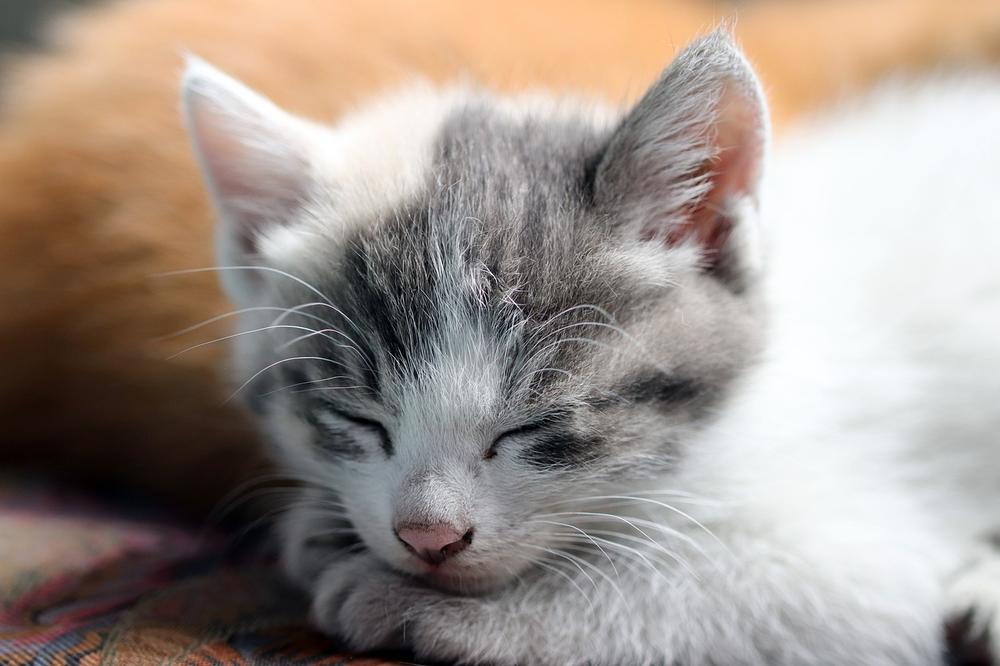
Usually.
But sometimes, a cat can stay territorial even when her babies have left the nest.
So, what should you do?
Give her some space and create a safe, quiet environment for her and the little ones.
Avoid sudden movements or loud noises that might provoke her anger.
Here are a couple of tips to handle maternal aggression:
- Make sure there are hiding spots and separate resting areas throughout your home.
- Set up multiple food and water stations around the house.
- Little by little, introduce new scents and objects to help her adjust to changes.
- If needed, you can use calming pheromone sprays or diffusers to create a peaceful atmosphere.
With these tricks and a pinch of patience, the motherly aggression will fade away eventually, allowing both the momma cat and her kittens to thrive together.
But understanding the duration of maternal aggression is just the beginning.
Now, let me delve deeper into the factors that can contribute to this behavior and provide strategies on how to effectively handle it...
Assisting Your Cat With Maternal Aggression
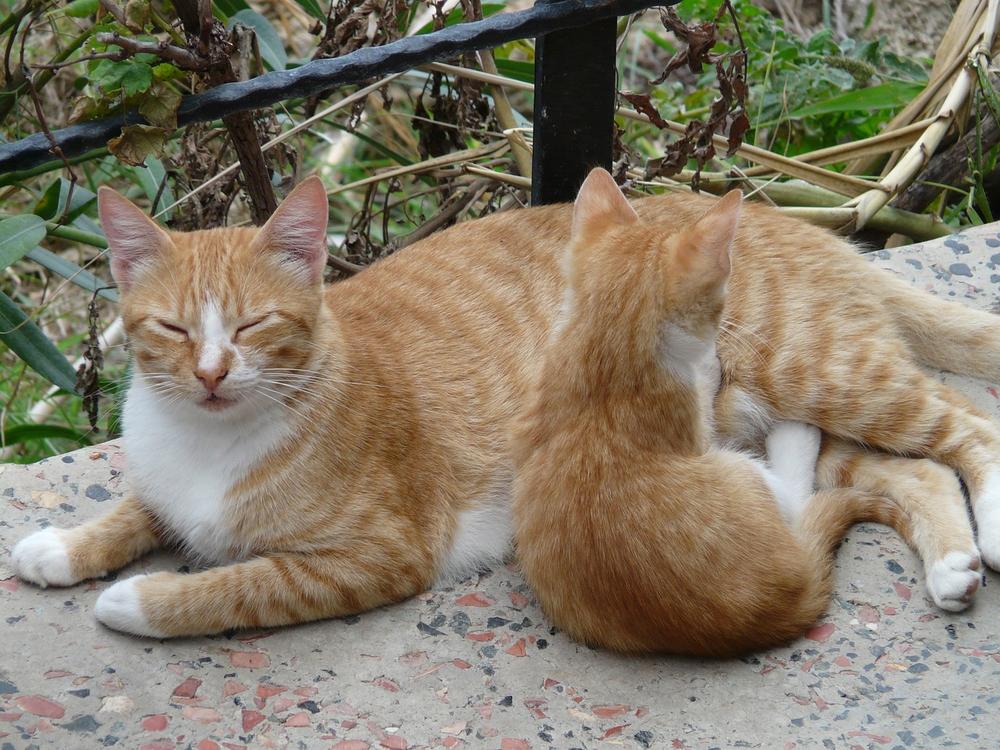
Here's how you can help your cat deal with maternal aggression in a concise and conversational style:
- Create a calm environment, no unnecessary disruptions.
- Less stress means lower chance of aggression.
- Approach the mother cat and kittens carefully.
- Give her space, avoid handling the newborns too much.
- Socialize and handle the kittens starting from week two.
- Introduce safe toys and let them meet other cats to reduce aggression.
- Don't forget exercise, it's important!
- Remember, mother cats are guarding their babies.
- Let her handle the kittens unless serious harm is happening.
- Maternal aggression can be caused by tough circumstances or sickness.
- It could lead to infanticide or unintentional aggression.
- During the first few days, limit interactions between mom and kittens.
- Provide a separate area with necessities for them.
- Allow natural behaviors, that's crucial.
- In severe cases, hormonal therapy or spaying might be necessary.
- Dealing with maternal aggression involves maintaining calm, reducing stress, showing affection, encouraging natural behavior, addressing promptly, and giving them time alone to bond.
- Fear-induced aggression is common in cats.
- Too much petting, conflicts, pain, or loud noises can also contribute.
- Maternal aggression happens when mom feels threatened or stressed.
Can I Move My Cat While She’s Giving Birth?
Moving a cat while she's in labor has its risks. Cats, resourceful as they are, know best when it comes to their little ones.
They'll whisk them away if danger looms, be it predators or rival felines.
Disrupting her chosen birthing spot can cause extra stress and disrupt the whole process.
It's advisable not to interfere with Mama Cat's instincts.
Let her roam free and choose where she deems safest for her brood. In this way, she'll feel comfortable, in control, and ready to bring forth new life.
Cleaning Your Cat After She Gives Birth
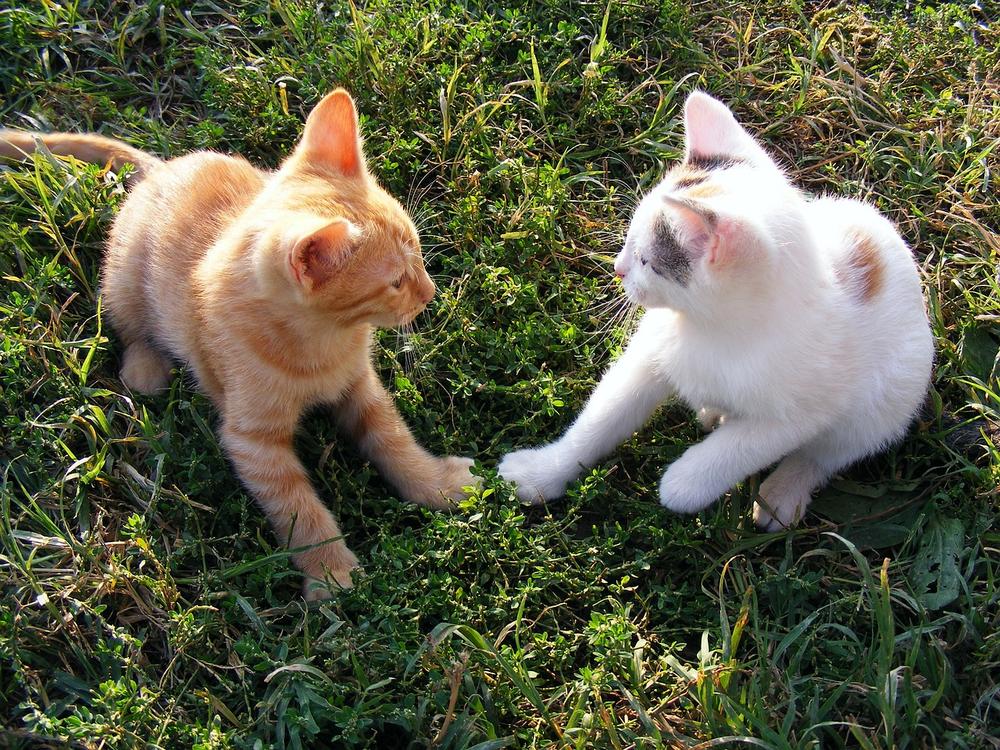
When it comes to cleaning your cat after she gives birth, there are a few things you should please bear in mind. Here's a list of important details and tips:
- Allow the mother cat to clean herself and her kittens – Licking stimulates blood circulation and facilitates breathing for the newborns, so it's best to let the mom take care of this natural process.
- Avoid using moisturizing sprays – Cracked and flaky skin in cats can be caused by these products, which can irritate both the mother cat and her kittens. Stick to gentle grooming techniques instead.
- Check for trapped kittens – If the mother cat wails loudly, it may indicate that one or more kittens have become trapped behind doors or cupboards. Make sure all areas are secure and accessible to prevent any accidents.
- Understand the mother cat's behavior – It is normal for the mother cat to move her kittens to different places. This instinctive behavior helps protect them from potential predators. Allow her to find the safest spot for her little ones.
By obeying these suggestions, you can guarantee the mother feline and her valuable kittens' safety and contentment throughout this significant period.
And that wraps up today's article.
If you wish to read more of my useful articles, I recommend you check out some of these: Why Does My Cat Sit in the Bathtub, Why Is My Cat Hiding in the Closet, Do Older Cats Purr More, Why Do Female Cats Hump, and Is Purring Involuntary in Cats
Talk soon,
-Sarah Davis